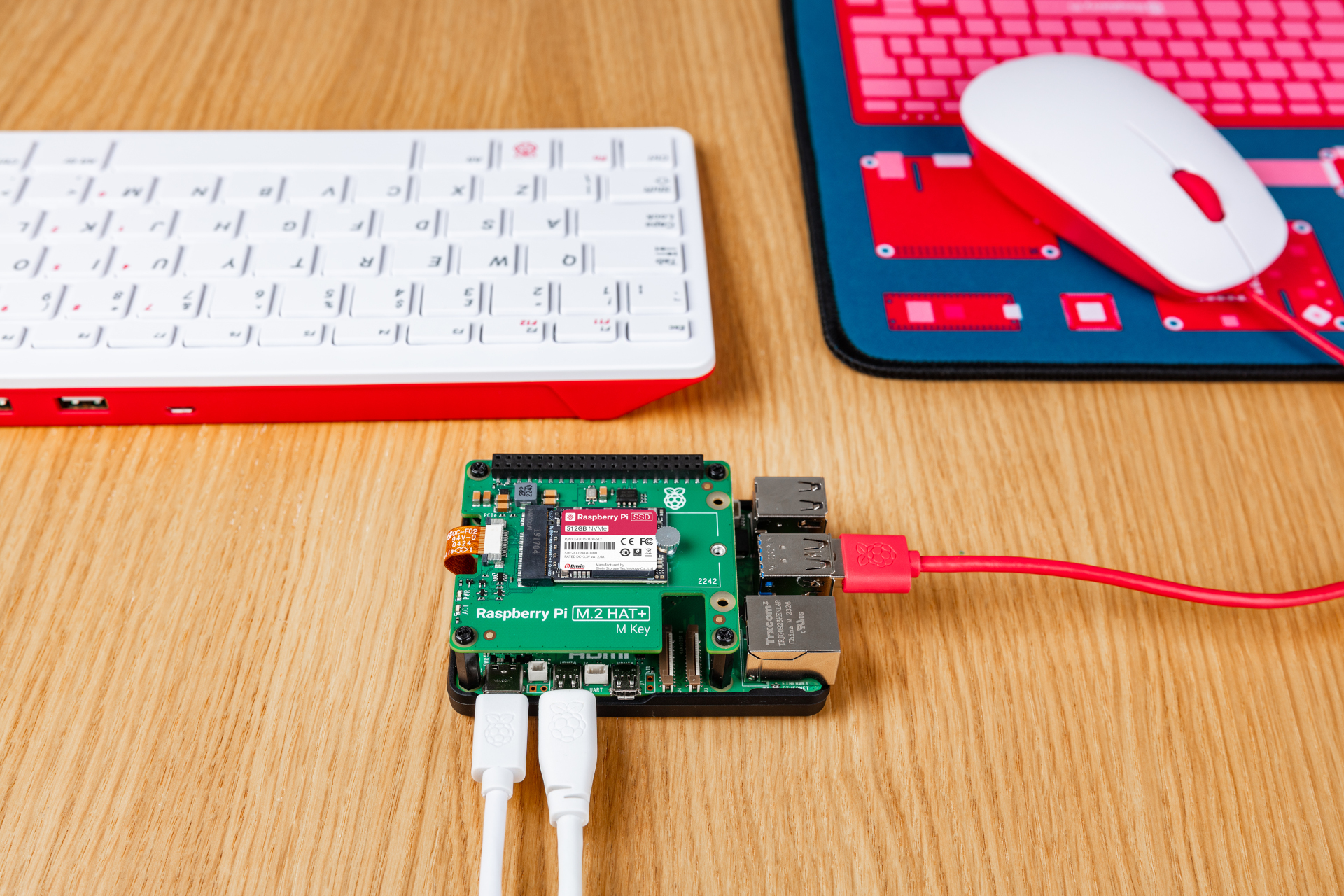
Raspberry Pi Ltd has announced the latest products in its range of accessories to support the flagship Raspberry Pi 5. The Raspberry Pi SSD Kit and Raspberry Pi SSD which come hot on the heels of the recent Raspberry Pi branded A2 micro SD cards and a bumper case.
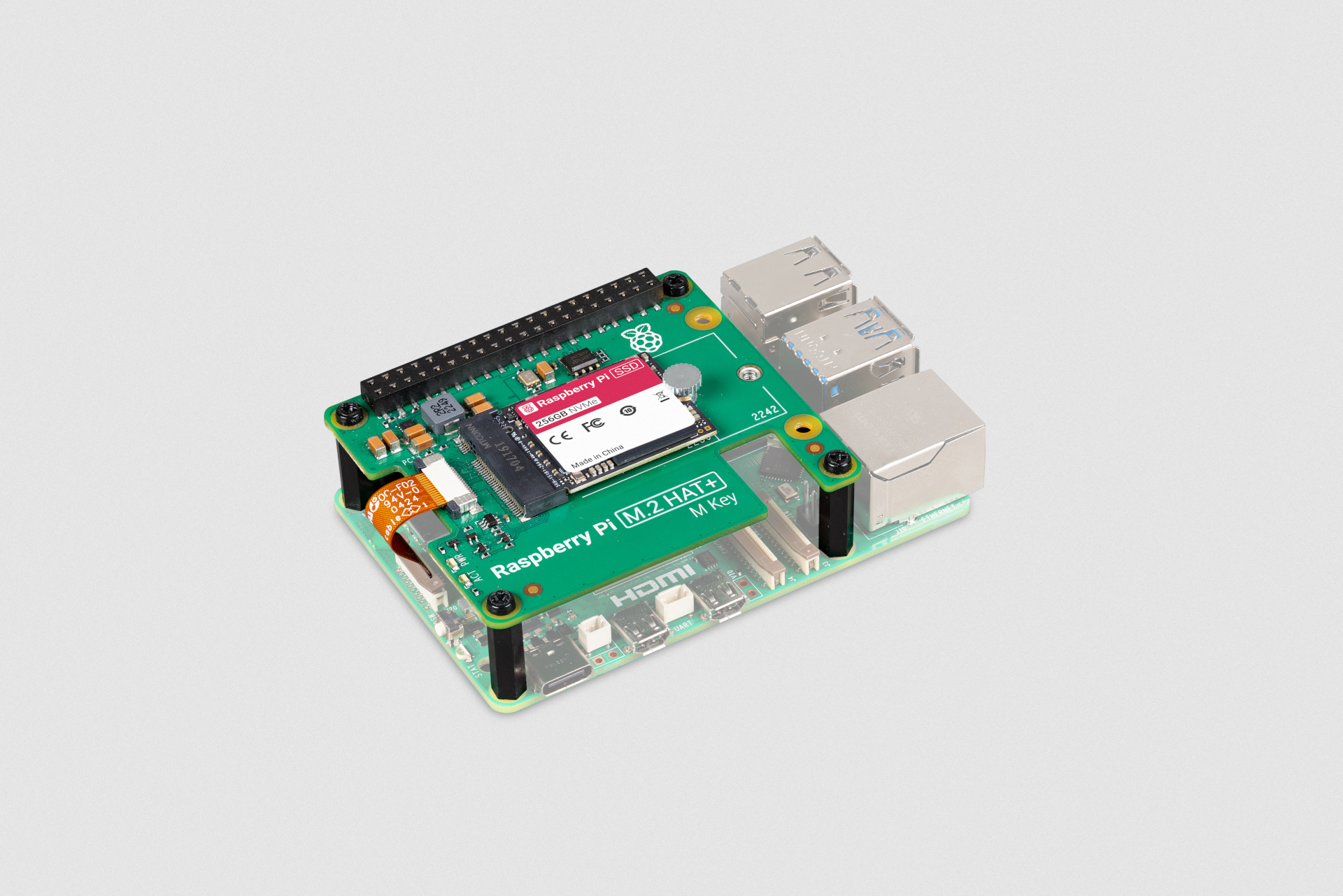
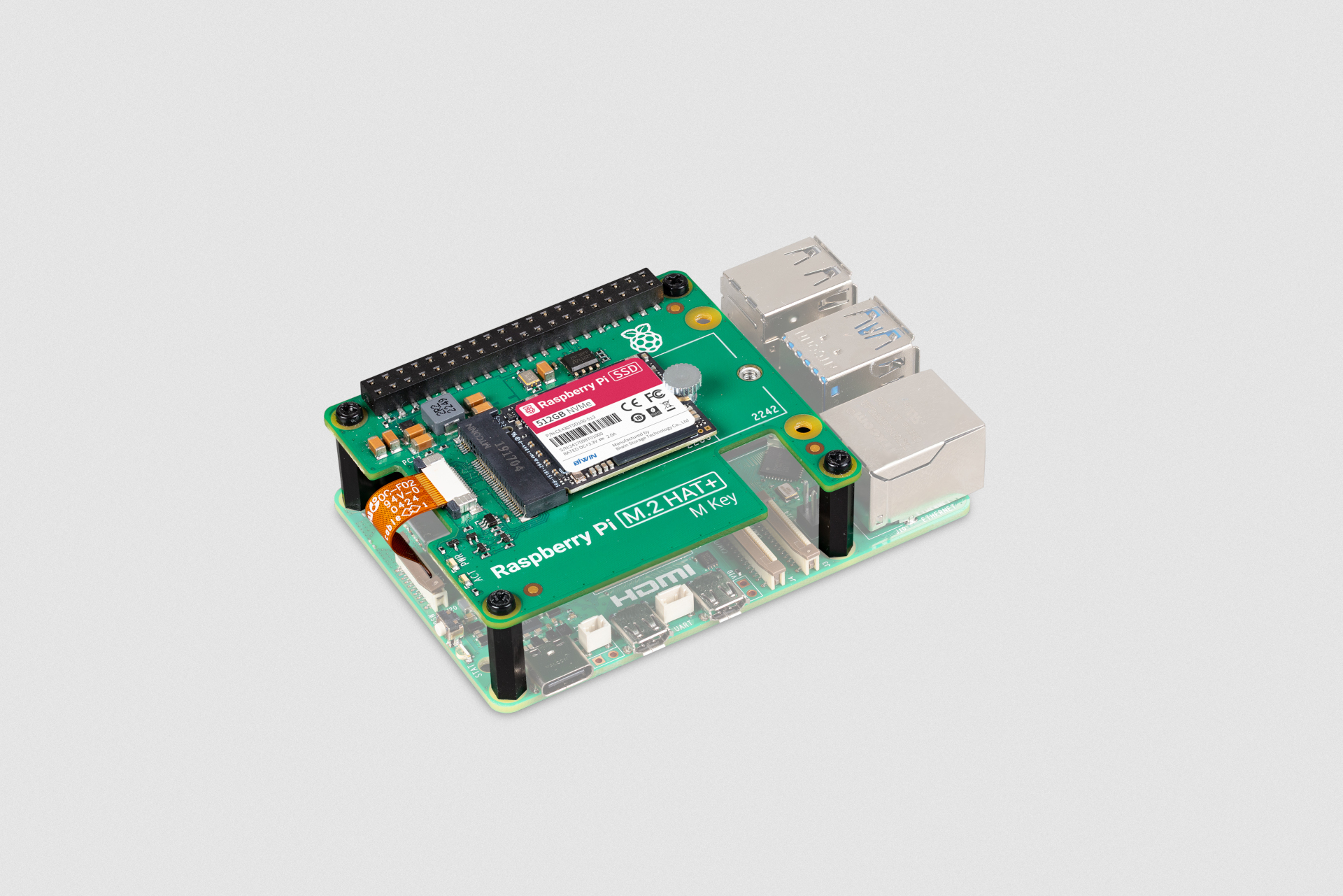
The Raspberry Pi SSD Kit is essentially the Raspberry Pi M.2 HAT+ bundled with your choice of PCIe Gen 3 compliant M.2 2230 256GB ($30) or 512GB ($45) M.2 NVMe SSD. The 256GB drive will be available from launch, with the 512GB option available for pre-order, with stock arriving from late November. Kit prices, which include the M.2 HAT+ board are $40 for the 256GB and $55 for 512GB.
Sharp-eyed readers may have spotted that the NVMe drives are PCIe Gen 3 compliant, but previously Raspberry Pi only claimed that PCIe Gen 2 was supported. You can enable Gen 3 speeds via raspi-config, but moving forward, could PCIe Gen 3 become the new default? We’ve tested many drives and breakout boards. It seems that PCIe Gen 3 is well supported and provides even more speed for the Raspberry Pi 5, often leading us to believe that the Raspberry Pi 5 could, truly, be a low-power desktop replacement for those of us who don’t need a hulking great desktop for our work.
The 256GB NMVe drive has a claimed 40,000 IOPS with 4kB random reads, and 70,000 IOPS with 4kB random writes. The 512GB model claims a 50,000 IOPS random read, and 90,000 IOPS random writes. We shall be confirming this once we receive our review units.
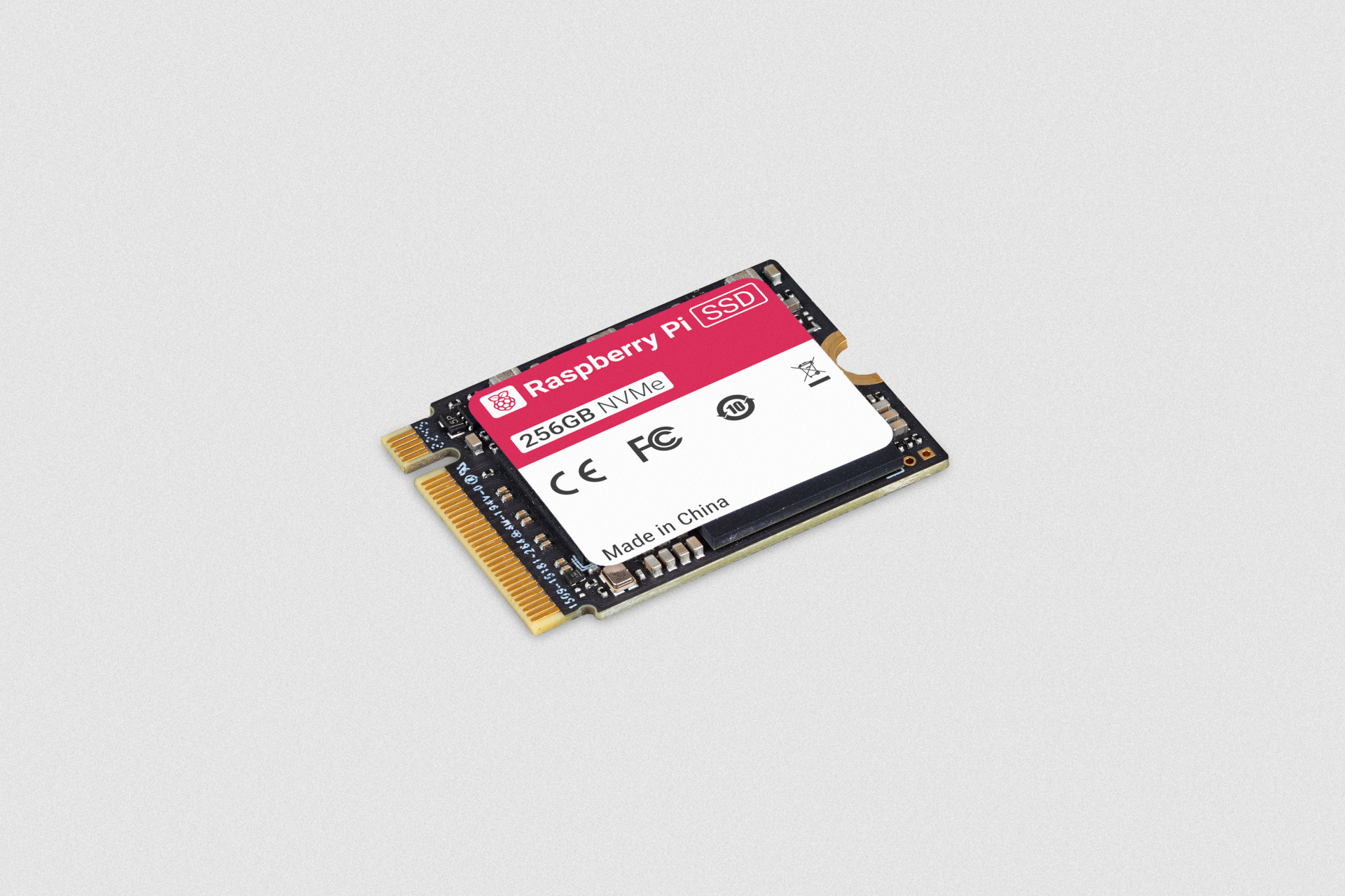
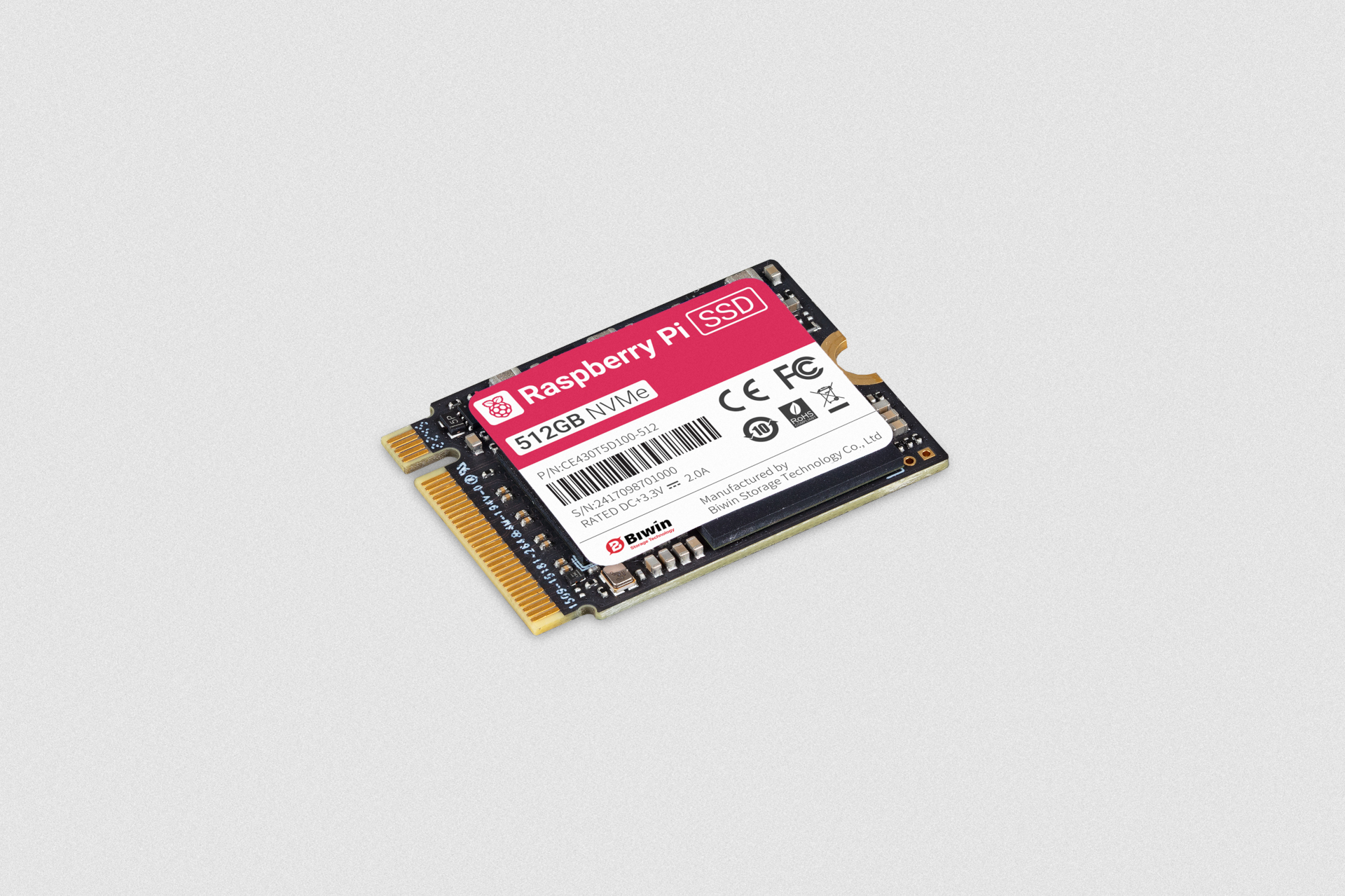
The drives are seemingly made by Biwin, an OEM supplier for HP, Acer and now Raspberry Pi. Biwin demoed its own range of first-party consumer SSDs and memory at Computex 2024. A sticker on the 512GB drive shows that it was made by “Biwin Storage Technology Co. Ltd”, but this information is not on the sticker for the 256GB model. It is highly likely that Biwin has made both drives, and we shall find out in our future review.
Raspberry Pi’s M.2 HAT+ was a great product. Bringing a low-cost means to add an M.2 NVMe hard drive or other PCIe devices, such as the Hailo-8L NPU used in the Raspberry Pi AI Kit. The M.2 HAT+ was easy to assemble, requiring just a few screws and locking the flat-flex cable into the PCIe connector. It did make GPIO access a little awkward, but it was possible to make a connection, but we found that the included 16mm M2.5 spacers used to lock the board in place were too long, replacing these for 12mm would be a better option.
Adding an NVMe SSD to your Raspberry Pi 5 is a complete no-brainer. In general it provides a massive speed boost, and with lower capacity drives costing not much more than a good quality micro SD card, it makes sense to grab an NVMe SSD for your Raspberry Pi.
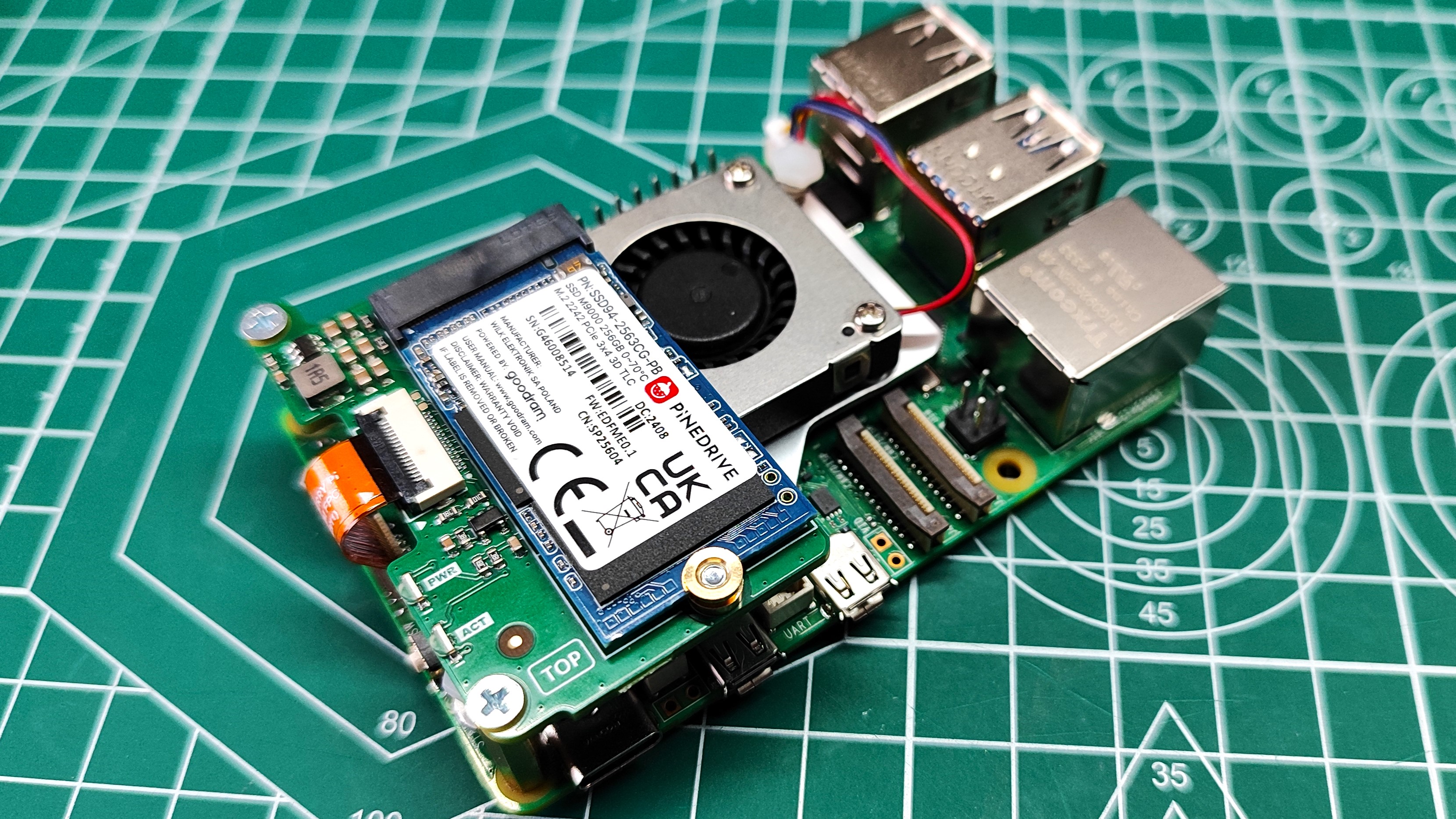
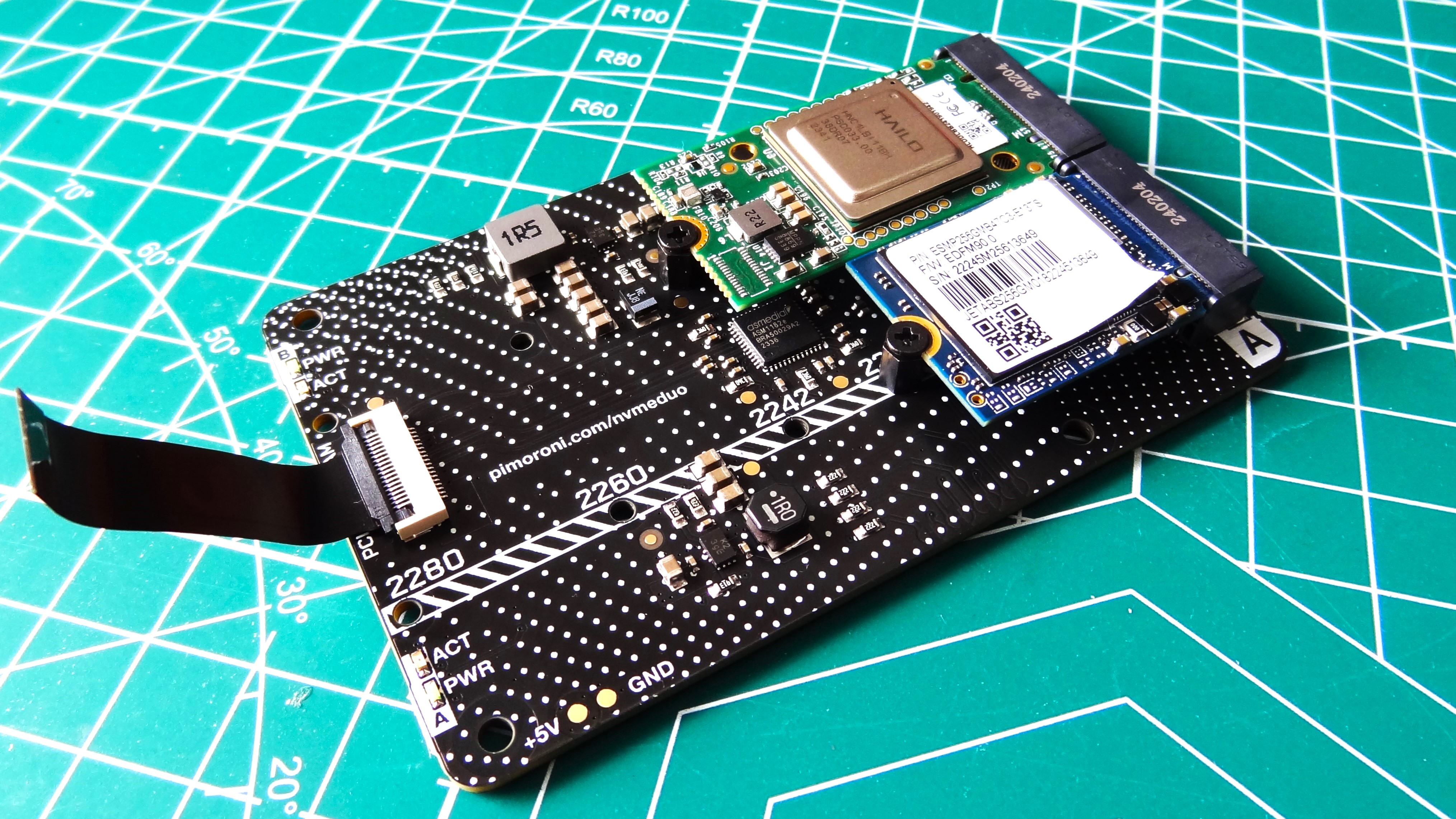
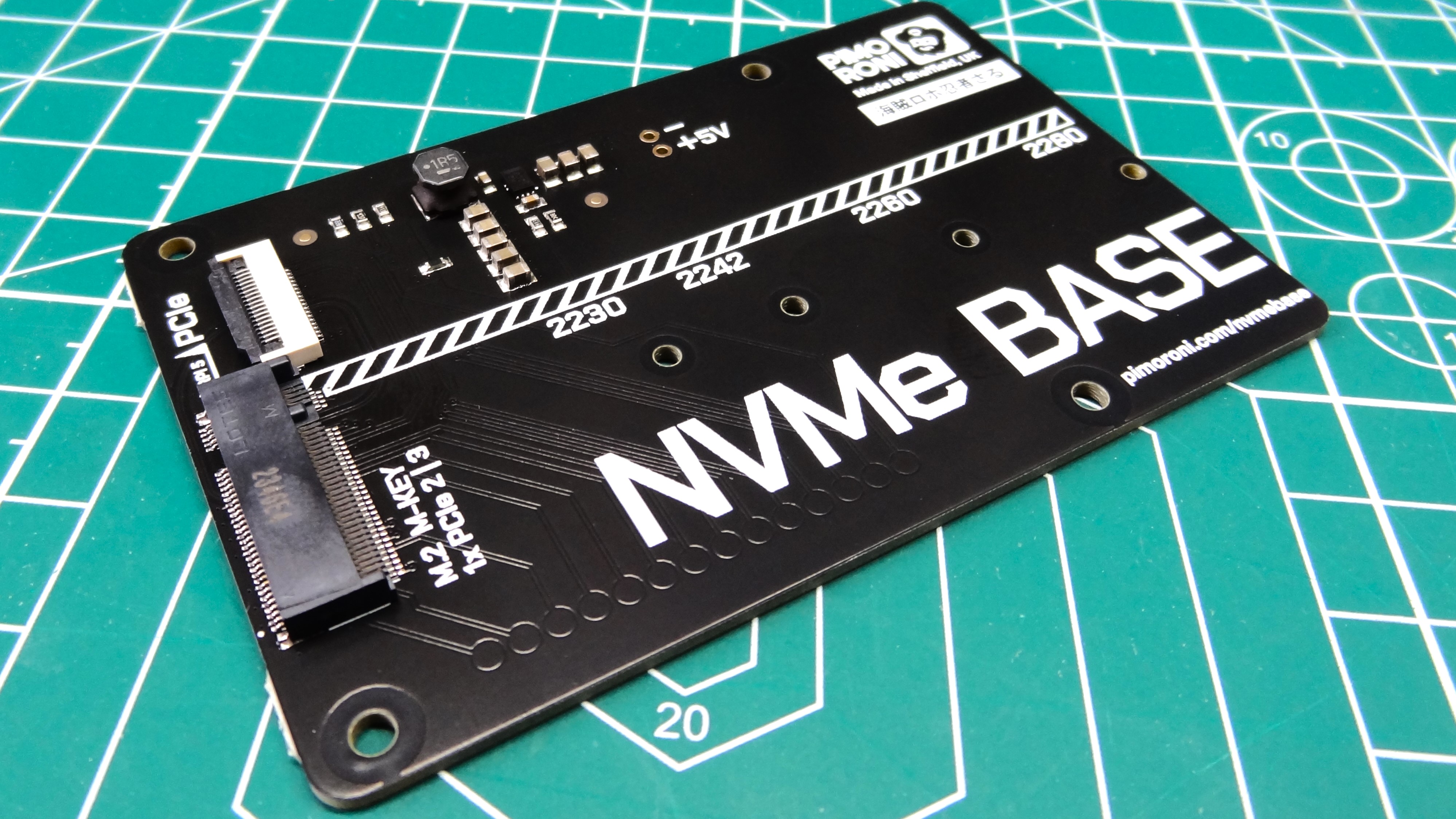
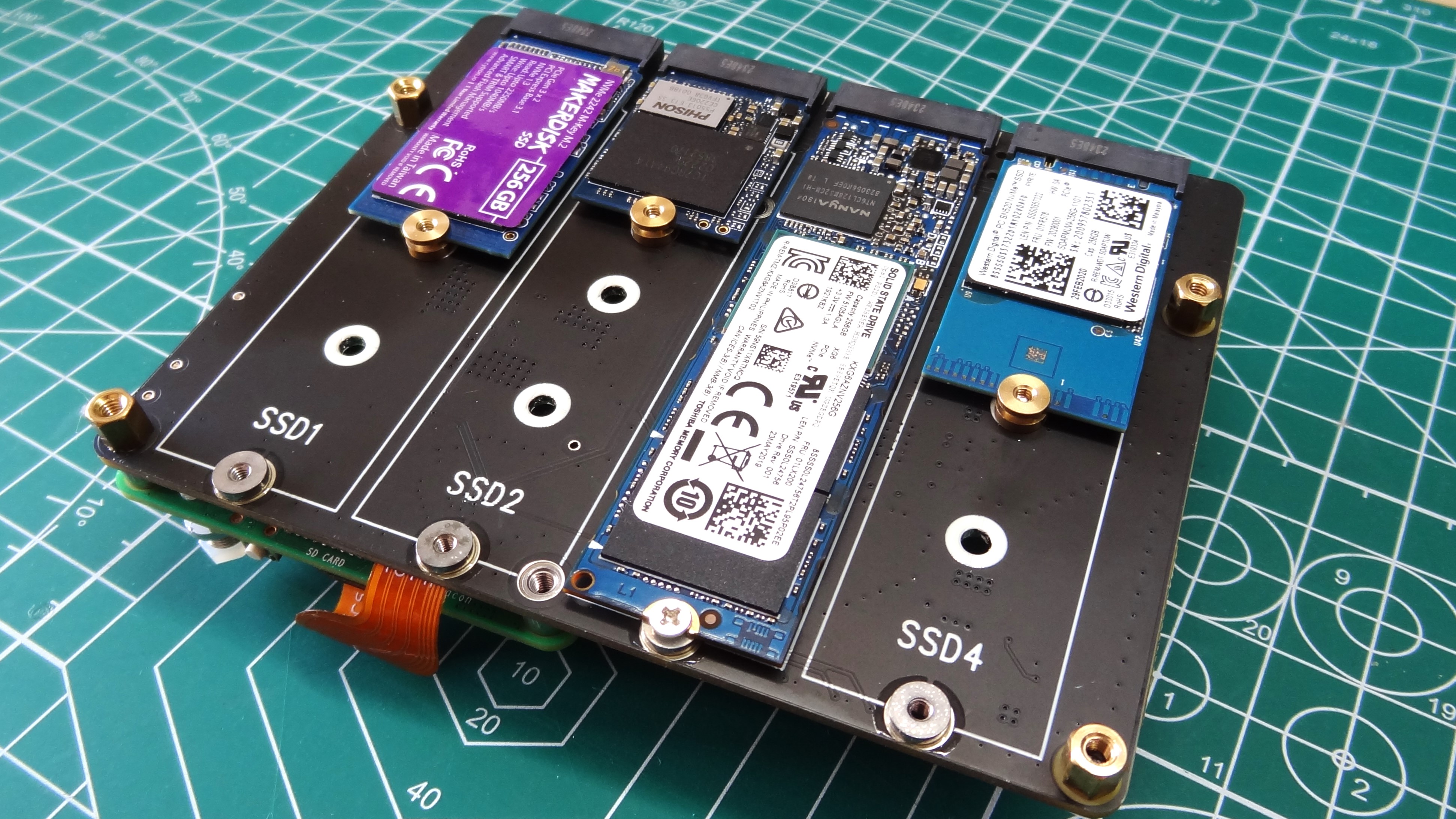
We’ve tested a plethora of NVMe HATs for the Raspberry Pi 5. From the low cost ($10) HatDrive! Nano (which received a 5-star review and Editor’s Choice award), Pimoroni’s NVMe Base and NVMe Base Duo to Geekworm’s X1011 which offers four NVMe SSD drive bays, but sacrifices speed as the number of drives increases.
Expect our full review and comparison to other drive options and the new Raspberry Pi A2 micro-SD cards in the coming days.







